Body length: 9–25 mm.
Eyes: eye interommatidial setaeseta:
a sclerotized hair-like projection of the cuticle
present, eye deeply emarginateemarginate:
notched at the margin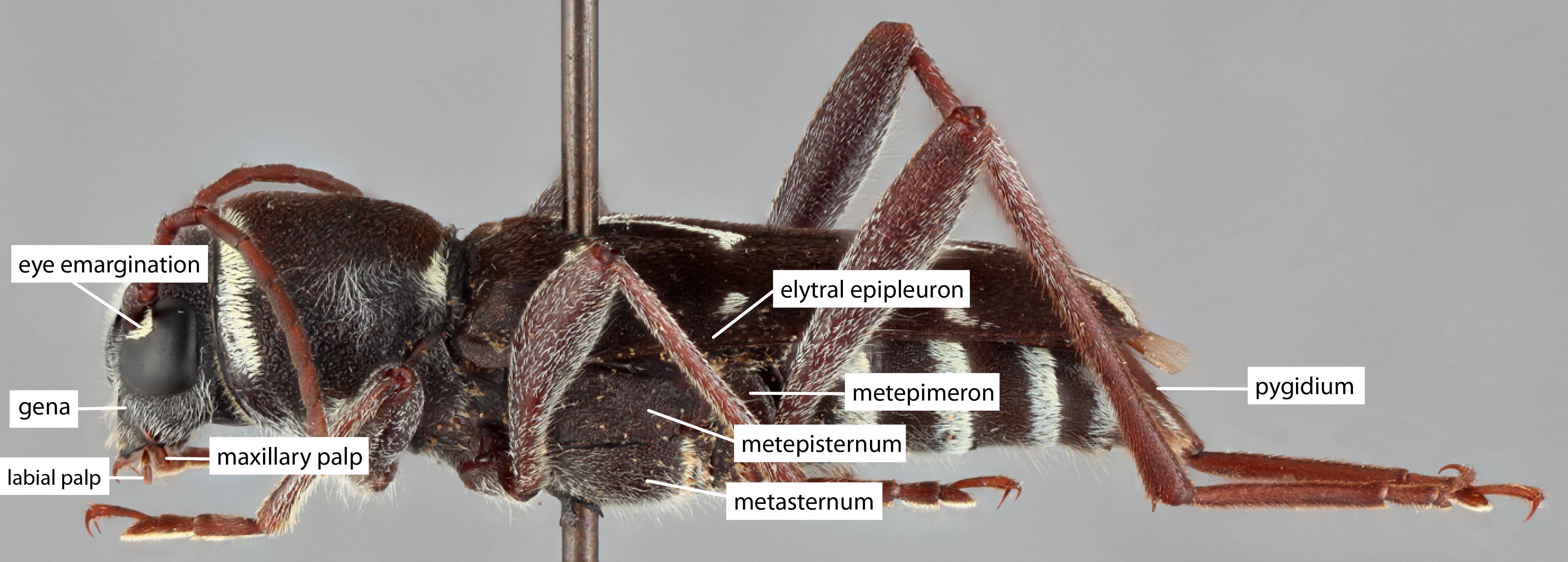 > half width, eye ommatidial density coarse.
> half width, eye ommatidial density coarse.
Antennaeantenna:
in larval and adult insects, paired segmented appendages, borne one on each side of the head, functioning as sense organs and bearing a large number of sensilla
: antennal length reaches between basebase:
the part of any appendage or structure that is nearest the body
and end of elytraelytron:
the leathery forewing of beetles, serving as a covering for the hind wings, commonly meeting opposite elytron in a straight line down the middle of the dorsum in repose
or reaching/surpassing end of body, antennal flagellar segments elongateelongate:
much longer than wide
, scapescape:
the first proximal segment of the antenna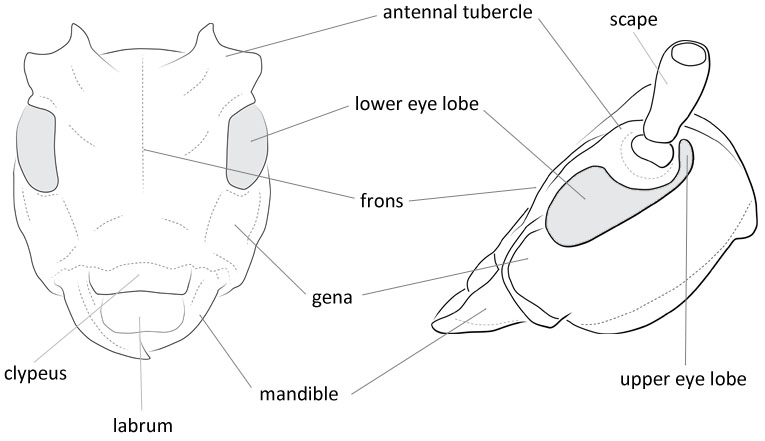 smooth/punctate at apexapex:
smooth/punctate at apexapex:
end of any structure distad to the base
, antennal scapescape:
the first proximal segment of the antenna ≥ segment 3.
≥ segment 3.
Pronotumpronotum:
the upper and dorsal part of the prothorax
: pronotumpronotum:
the upper and dorsal part of the prothorax
shape transversetransverse:
broader than long
, pronotumpronotum:
the upper and dorsal part of the prothorax
lateral armature absent.
Prosternum: prosternal processprosternal process:
a posterior extension of the prosternum between the coxae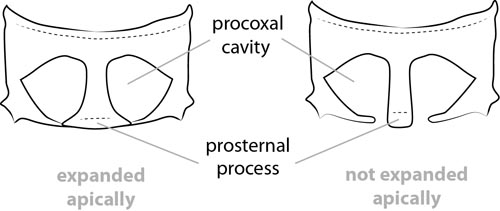 dilated at apexapex:
dilated at apexapex:
end of any structure distad to the base
, rarely not dilated at apexapex:
end of any structure distad to the base
, procoxal cavities open posteriorly.
Elytraelytron:
the leathery forewing of beetles, serving as a covering for the hind wings, commonly meeting opposite elytron in a straight line down the middle of the dorsum in repose
: elytral length reaching or close to end of abdomen, elytral apicesapex:
end of any structure distad to the base
rounded or truncatetruncate:
cut off squarely at the tip
, elytral color brown, reddish, or orange, elytral color pattern present or absent.
Legs: visible tarsomerestarsomere:
subdivision or article of the tarsus, usually numbering from two to five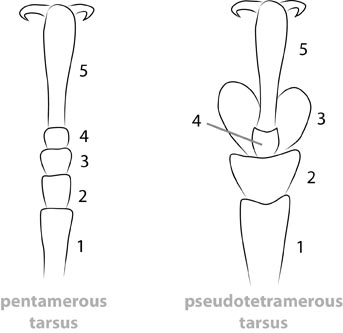 : 4, femora clavateclavate:
: 4, femora clavateclavate:
thickening gradually toward the tip
, protibial spursprotibial spur:
sclerotized spine(s) located at the distal tibia; can be single, double, or absent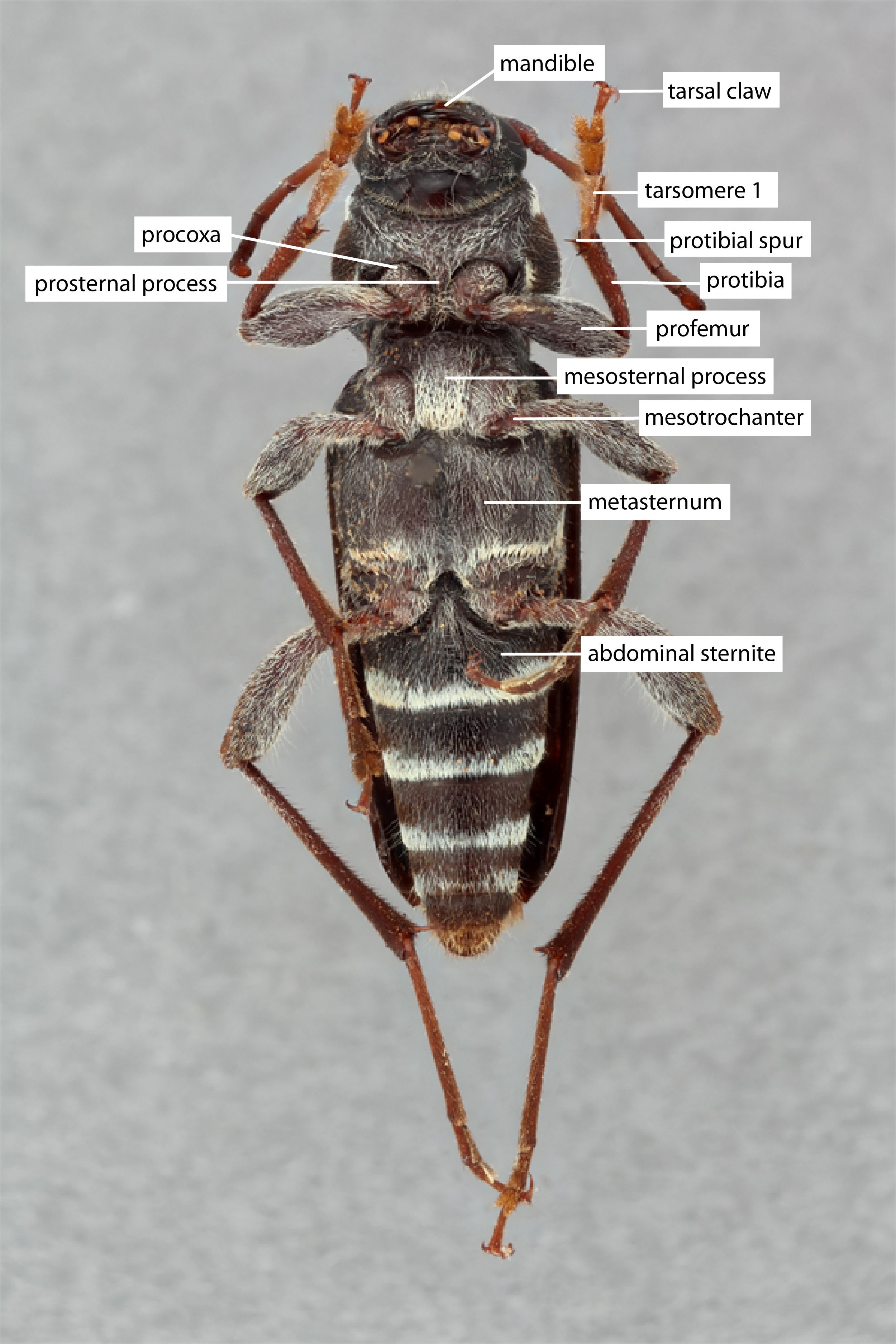 : 2, tarsal clawstarsal claw:
: 2, tarsal clawstarsal claw:
usually paired claws of the pretarsus, at the distal end of the leg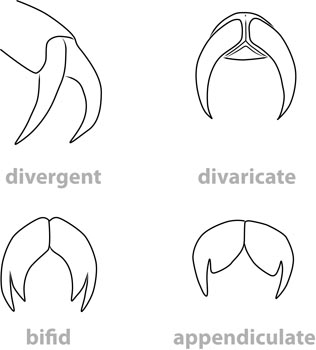 simple.
simple.
Hesperophanes, Stromatium, Proatimia
Differs from other Hesperophanini by lacking erect setaeseta:
a sclerotized hair-like projection of the cuticle
on the elytraelytron:
the leathery forewing of beetles, serving as a covering for the hind wings, commonly meeting opposite elytron in a straight line down the middle of the dorsum in repose
, the small and rounded projections of the antennal tubercles, and spots of elytral pubescence.
Palearctic, T. campestris introduced in Nearctic
broadleaf; Pinus, Picea, Abies, Larix; Cunninghamia, Cedrus, Chamaecyparis obtusa, Thuja occidentalis
26 spp. + another subspecies
Hesperandrius Reitter, 1912
Hesperophanes (Trichoferus) Niisato, 2007Niisato, 2007:
Niisato T. 2007. Yoshiakioclytus, a New Anaglyptine Genus (Coleoptera, Cerambycidae) from Taiwan. Elytra, Tokyo 35(2): 577–584, 13 figs.
Trichoferus, Wollaston, 1854